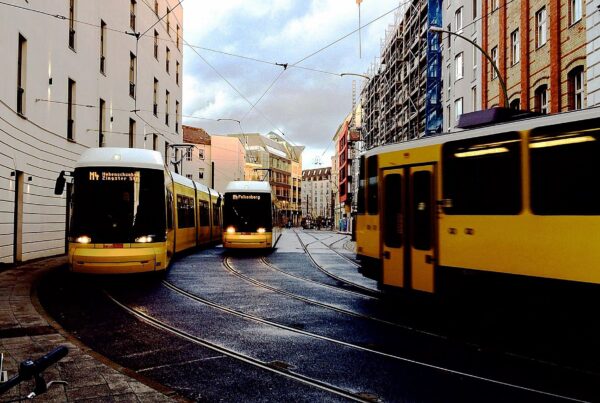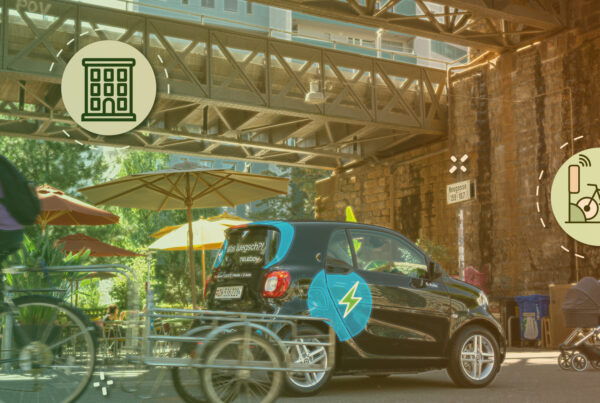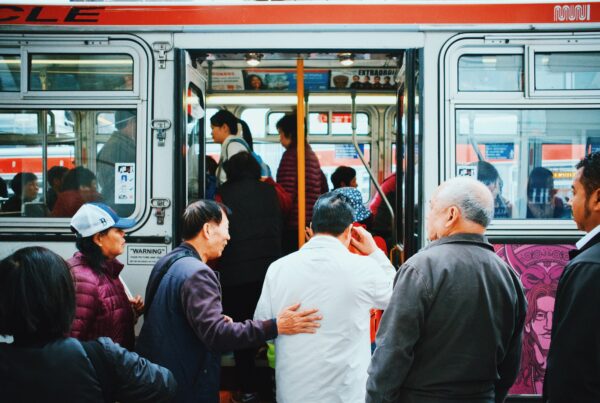The Mobility Hub
Your weekly guide to the latest in shared mobility
SUMC News and Announcements
Featuring the following panelists (you can read their full bios here.)
SUMC is pleased to announce that Danielle J. Harris will be joining our Board
We introduced you to Danielle, the Managing Director of Engagement & Innovation at Elemental Excelerator, a few weeks ago as a Host of the 2021 Summit. She’ll be leading a conversation titled, Who’s Behind the Curtain of Emerging Mobility? (We can’t wait to find out.) Welcome again to SUMC, Danielle.
June webinars and events to get you revved up:
RAISE-ing up Bikeshare with Federal Funds
June 3, 2021 | 12:00 PM PT
Learn about the public funding opportunities available for bikeshare and how to meet the job-creation, racial equity, and environmental sustainability criteria important to successful RAISE (formerly BUILD) grant applications at this Nelson\ Nygaard Webinar.
Chicago’s ETOD Plan: How communities, government and developers united
June 9, 2021 | Noon – 1:30 pm CDT
Transit is for the community, so taking a community-first approach to equitable transit-oriented development should be standard. Find out how Chicago approached deep community engagement and cross-sector collaboration in the development of the City’s ETOD plan at this Webinar. Bonus: it’s moderated by SUMC Board Member Mariia Zimmerman.
You’re Invited: Informal Public Transport: The future of Research on Informal Public Transport, Shared Mobility and Paratransit
June 09, 2021 | 17.00 – 18:30 AM CET
Volvo Research and Educational Foundations invites you to the launch event for its new program: Informal Public Transport. You’ll hear about preparatory findings, as well as key areas of research and development that will shape the future of this new program.
Join us at a digital, 23-hour protest, confronting racism in urban planning
June 18, 2021 | 11:00 AM CDT – June 18, 2021 at 10:00 AM CDT
The Unurbanist Assembly is an annual virtual 23-hour teach-in, confronting the legacy of racism in urban planning. The inaugural event was planned in response to the murder of Ahmaud Arbery–an unarmed 25-year-old African-American man who was pursued and fatally shot while jogging on February 23, 2020.
Note: The Mobility Hub will be going out every other week until the end of July. Then we’ll ask you what you prefer.

Mobility Justice
US-born Latinos have a different cycling experience than foreign-born Latinos, according to Transfers magazine, which points out the alternate perceptions and finds the similarities in both groups’ social environments that can encourage cycling transport.
When you take cash out of the transit fare equation some people will get left behind, concluded a study out of Portland State University—finding that “all of the payment options that included cash fares increased transit access among residents in the case study cities.”
The loss of Greyhound in Canada will no doubt have rippling effects that’ll change how people move within and between less dense parts of the country, especially in disadvantaged rural and remotes areas, but women experiencing violence (and hoping to escape) might stand to lose the most from the shutdown.

Ridehailing/Carsharing/Carpooling
Chicago ridehail users have probably, ahem, “noticed” the increased prices of late, often double and even triple of pre-pandemic levels. To address this, Downtown Chicago Alderman Brendan Reilly is proposing a fare cap on ridehail trips in the city, noting the “imbalanced regulation” between Lyft and Uber vs taxi cabs.
To adapt to low bus ridership and a reduced workforce, Sarasota County Area Transit will replace several fixed-route lines with new on-demand microtransit services powered by Via subsidiary River North Transit–it’s getting underway early next month.
If you’re looking for a new way to go from A to B, you’ll find peer-to-peer carsharing platform Eligo Cars launching in Canada and IIZI (pronounced like “easy”) jumping into the ridehail scene in North Carolina.

Bikesharing & Micromobility
Connecting communities through safe, active transportation is not only the foundation of inclusive and healthy cities but the basis of sustainable, equitable transportation infrastructure that can help all people get to important amenities without a car.
LA Metro will take forgotten bikes (a staggering 400-500 left on Metro property) and redistribute them for free to anyone in need through a new Adopt-A-Bike program instead of the typical auction—providing reliable and safe travel on two wheels.
Micromobility has the potential to cut emissions by over 30 million tons and create nearly 1 million jobs in Europe, according to a new report from EIT InnoEnergy, but operators and cities will need to overcome lackluster vehicle lifespans, high operation costs, and weak public transit integration to hit those goals by 2030.

Transit
Luxembourg and Tallinn, Estonia were the first country and capital city in the EU to abolish transit fares, and now a wave of free public transit in French towns has sparked conversation on whether such transit-equity measures can be implemented in larger cities like Paris.
New Jersey Transit is aiming for a zero-emissions bus fleet by 2040—which necessitates ramping up EV charging upgrades around the state and preparing for Jersey’s first electric bus pilot in Camden starting later this year.
Over in New York, the MTA has upped its sustainable transit plans with the somewhat upcoming purchase of 60 new electric buses (15 more than proposed), which will bring the total to 85 EVs when it rolls out. A tiny, but meaningful, step towards the agency’s envisioned 5,800 EV buses by 2040.

Technology
EV infrastructure may help fight the pollution-spewing consequences of our transportation system, but if charging deserts remain prevalent across the US, electric vehicles will remain a niche market with little environmental impact.
Martha’s Vineyard, the popular Massachusetts island, will use solar power to generate electricity for its growing electric bus fleet (and we’re talking 700 Kw) and use a microgrid storage facility that can be independently operated during emergency cases and outages.
People with visual impairments can now get voice-guided directions and assistance just by scanning a QR code at select transit stations in trial cities worldwide thanks to a new tech partnership between transportation operator Keolis and NaviLens.

Sustainability
New York wants to put a warning label on SUVs (we completely support this for all cars) in an effort to establish a statewide vehicle safety rating based on a specific model’s collision reports for pedestrians and cyclists.
Cities that were torn into segregated pieces by highways may remove physical barriers by tearing down these multi-lane divides, but can sheer extraction ever replace what was lost, socially, culturally and economically? Learn how some metros want to revitalize this reclaimed land for communities in the New York Times.
Philadelphia saw a surge of pedestrian and cycle traffic after it closed off Martin Luther King Drive from cars, but now the city may revert back to the auto-oriented status quo with fewer spaces for people as travel behavior slowly returns back to normal.
Project Funding Opportunities
RFP: Microtransit Mobility-on Demand Dispatch System
Des Moines Area Regional Transit Authority
Des Moines, IA
Deadline: June 11, 2021
RFP: Vehicle Electrification Advisory Services for Fleets Pilot Program
Massachusetts Clean Energy Center
Deadline: June 14, 2021
Notice of Funding: Pilot Program for Transit-Oriented
Development Planning FY2021
Federal Transit Administration
Deadline: June 21, 2021
We’d like to thank the following sponsors for their support
of the 2021 National Shared Mobility Summit.
Interested in sponsorship? (Yay!) Take a look at the options.
Have breaking news or an interesting deep dive to share?
Let us know.








